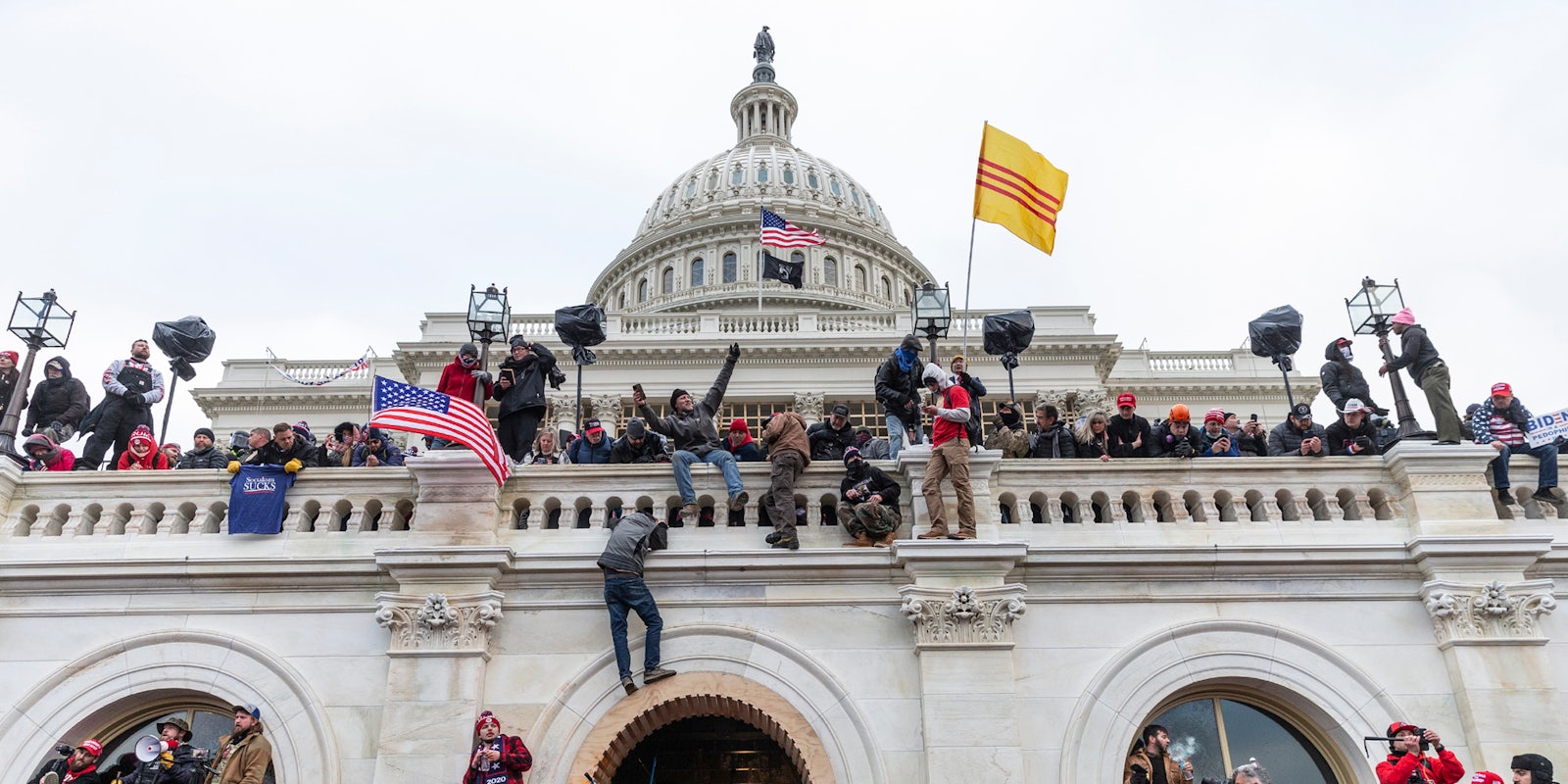One of Facebook‘s top executives said he couldn’t “give a yes or no answer” when asked whether the social media giant’s algorithms amplified pro-insurrection content ahead of the Capitol riot earlier this year.
Nick Clegg, Facebook’s vice president, essentially sidestepped questions about the Capitol riot—where supporters of former President Donald Trump stormed the building in a failed attempt to stop the certification of the 2020 election—during an interview on CNN’s “State of the Union” on Sunday.
The interview comes as Frances Haugen, a Facebook whistleblower, is set to meet with the House select committee investigating the Capitol riot. Haugen said that Facebook conducted an experiment that found that if a new user followed Trump and other mainstream Republican figures, they were shown QAnon conspiracy theory pages within a week. Many Capitol rioters were QAnon supporters.
Clegg was asked on CNN for a “simple yes or no” as to whether the social media giant’s algorithms amplified or spread “pro-insurrection voices” ahead of the Capitol riot.
The Facebook executive danced around the question by defending the algorithms as “a giant spam filter” that is meant to “identify and deprecate bad content.”
When he was pressed again about the Jan. 6 riot, he said:
“Given that we have thousands of algorithms and you have millions of people using this, I can’t give you a yes or no answer to the individual personalized feeds that each person uses,” Clegg said. “We cooperate with law enforcement, of course, to give them content that might have shown up on our platform. But let’s be clear, of course, Jan. 6, the responsibility for that is for the people who broke the law, who inflicted the violence, who aided and abetted them, who encouraged them…”
CNN’s Dana Bash cut in by asking whether it was a problem if the company “allowed it to fester and amplify.”
“The whole point, of course, of Facebook is that each person’s newsfeed is individual to them. It’s like a sort of individual fingerprint and that’s basically determined by the interaction, your choices, your friends, your family, the groups you choose to be part of. And those ranking algorithms that I referred to earlier. So I can’t give a sort of generic answer to each person’s individual feeds. What I can say is where we see content that we think is relevant to the investigations of law enforcement, of course, we cooperate with them.”
In late August, the House committee investigating the Capitol riot sent letters to 15 social media and tech companies—including Facebook—where it asked for records like internal and external reviews, studies, or reports about election misinformation and efforts to “overturn, challenge, or otherwise interfere with the 2020 election.”


